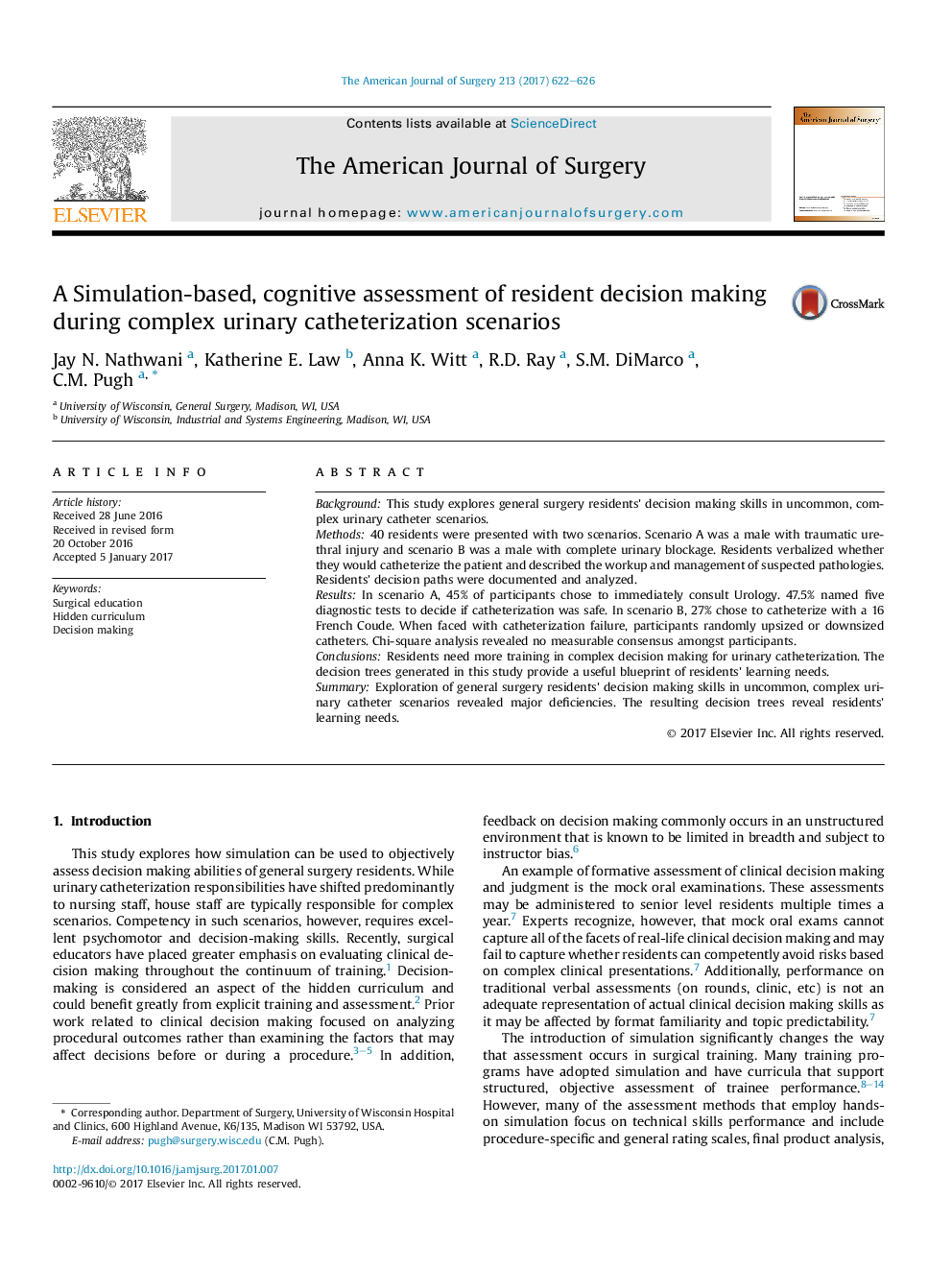| Article ID | Journal | Published Year | Pages | File Type |
|---|---|---|---|---|
| 5731285 | The American Journal of Surgery | 2017 | 5 Pages |
BackgroundThis study explores general surgery residents' decision making skills in uncommon, complex urinary catheter scenarios.Methods40 residents were presented with two scenarios. Scenario A was a male with traumatic urethral injury and scenario B was a male with complete urinary blockage. Residents verbalized whether they would catheterize the patient and described the workup and management of suspected pathologies. Residents' decision paths were documented and analyzed.ResultsIn scenario A, 45% of participants chose to immediately consult Urology. 47.5% named five diagnostic tests to decide if catheterization was safe. In scenario B, 27% chose to catheterize with a 16 French Coude. When faced with catheterization failure, participants randomly upsized or downsized catheters. Chi-square analysis revealed no measurable consensus amongst participants.ConclusionsResidents need more training in complex decision making for urinary catheterization. The decision trees generated in this study provide a useful blueprint of residents' learning needs.SummaryExploration of general surgery residents' decision making skills in uncommon, complex urinary catheter scenarios revealed major deficiencies. The resulting decision trees reveal residents' learning needs.
